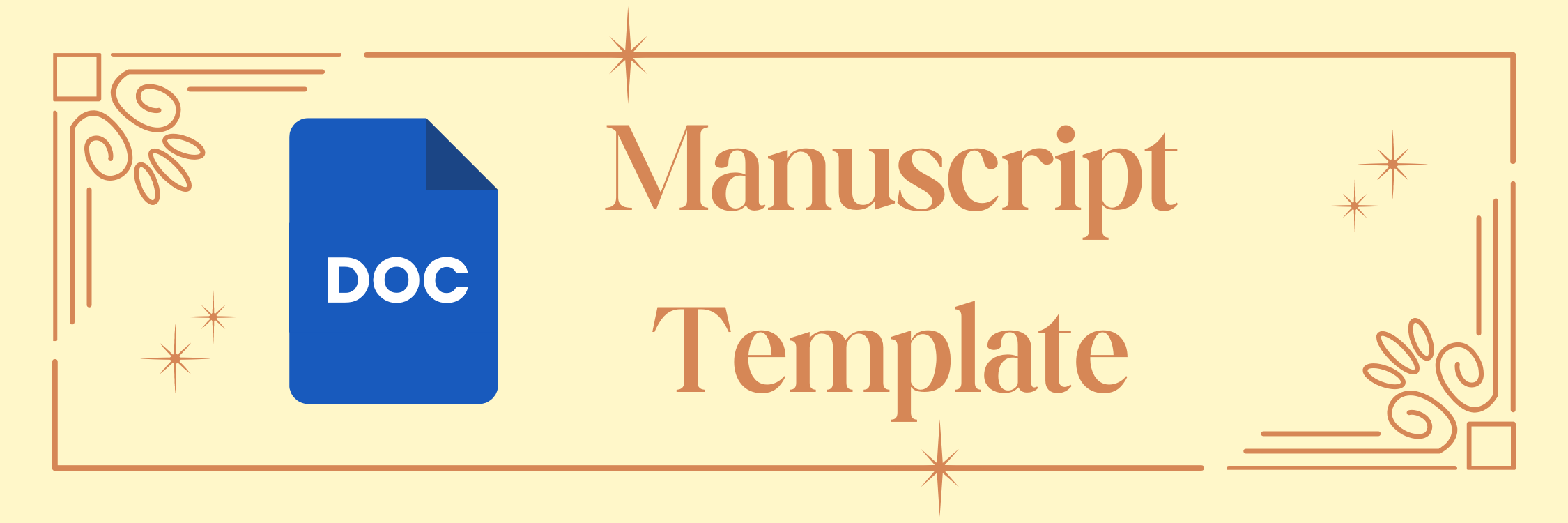Evaluation of the existing conditions of lasiana beach tourism destinations and ecosystems, Kupang City
DOI:
https://doi.org/10.69812/itj.v1i2.40Keywords:
Tourist Destinations, Tourist Ecosystems, Existing ConditionsAbstract
This research aims to determine the existing conditions of the destination and ecosystem of Laisiana beach tourism and evaluate the performance and importance of these existing conditions. This research falls under the action research design with data acquisition techniques using interview, observation, and documentation techniques. Determining the research population is through non-probability sampling with a convenience sampling approach and key actors sampling. The number of research samples is 75 people. Variable measurement is done on a Likert scale. The data types consist of primary and secondary data. Data analysis is done using a quantitative approach, namely interval technique and IPA analysis. The research results indicate that there is still a gap between the existing conditions of the destination and the tourism ecosystem towards satisfaction. The evaluation results show that the existing conditions of tourist destinations have not been a focus while the expectations of tourists are very high. Unlike the existing tourism conditions, most attributes such as community acceptance, tourist locations, tourist products, investments, development policies, and supporting tourism industries are expectations of tourists to be improved but are not a priority, while aspects that are not of concern to tourists receive excessive attention such as tourist targets, supporting facilities, tourism trends, product value, marketing, and tourism resources.
Downloads
References
Abduh, M., Alawiyah, T., Apriansyah, G., Sirodj, R. A., & Afgani, M. W. (2023). Survey design : Cross sectional dalam penelitian kualitatif. Jurnal Pendidikan Sains Dan Komputer, 3(1), 31–39. https://doi.org/https://doi.org/10.47709/jpsk.v3i01.1955
Aini, Y. N. (2024). Sustainable tourism in Southeast Asia : Balancing economic growth, employment, and carbon emissions through evidence-based strategies. Jurnal Kepariwisataan Indonesia : Jurnal Penelitian Dan Pengembangan Kepariwisataan Indonesia, 18(1), 157–174. https://doi.org/https://doi.org/10.47608/jki.v18i12024.157-174
Algifari. (2019). Measuring Service Quality with Satisfaction Index, Importance-Performance Analysis (IPA) Method and Canoe Model. Penerbit BPFE Yogyakarta.
BPS Indonesia. (2024). Perkembangan Pariwisata April 2024. Bps.Go.Id. https://www.bps.go.id/id/pressrelease/2024/06/03/2351/perkembangan-pariwisata-april-2024.html
Budiaji, W. (2013). Skala pengukuran dan jumlah respon skala Likert. Jurnal Ilmu Pertanian Dan Perikanan, 2(2), 127–133. https://doi.org/10.31227/osf.io/k7bgy
Buhaerah, P. (2017). Pembangunan Keuangan dan Pertumbuhan Ekonomi: Studi Kasus Indonesia. Kajian Ekonomi Dan Keuangan, 1(2), 165–180. https://doi.org/10.31685/kek.v1i2.203
Dampung, M. M. F., Herlambang, S., & Santoso, S. (2020). Rencana penataan kawasan destinasi wisata pantai Lasiana Kota Kupang, Provinsi Nusa Tenggara Timur. Jurnal Sains, Teknologi, Urban, Perancangan, Arsitektur (STUPA), 2(2), 2687–2702. https://doi.org/10.24912/stupa.v2i2.8867
Darwis, R. S. (2017). Membangun desain dan model action research dalam studi dan aksi pemberdayaan masyarakat. KOMUNIKA: Jurnal Dakwah Dan Komunikasi, 10(1), 142–153. https://doi.org/10.24090/komunika.v10i1.869
Gegung, E. M. (2021). International tourism and the COVID-19 Pandemic: The use of virtual reality to increase tourism destination sustainability and how users perceive the authenticity of VR Experiences. Jurnal Kepariwisataan Indonesia: Jurnal Penelitian Dan Pengembangan Kepariwisataan Indonesia, 15(1), 9–15. https://doi.org/10.47608/jki.v15i12021.9-15
Habaora, F., Fuah, A. M., Abdullah, L., Priyanto, R., Yani, A., & Purwanto, B. P. (2020). Importance-Performance Analysis toward productivity of Bali cattle based on agroecosystem in Timor Island. Journal of Animal and Veterinary Advances, 19(5), 57–66. https://doi.org/10.36478/javaa.2020.57.66
Habaora, F., Riwukore, J. R., & Yustini, T. (2021). Kondisi Eksisting Destinasi Pariwisata Pantai Lasiana Kota Kupang Berdasarkan Atraksi, Aksesibilitas, Fasilitas, Kelembagaan, dan Ekosistem Pariwisata. Jurnal Kepariwisataan Indonesia: Jurnal Penelitian Dan Pengembangan Kepariwisataan Indonesia, 15(2), 103-115.
Habaora, F., Riwukore, J. R., & Yustini, T. (2021). Analisis deskriptif tentang tampilan kinerja Aparatur Sipil Negara di Sekretariat Pemerintah Kota Kupang Nusa Tenggara Timur Indonesia. Jurnal Ilmiah Ekonomi Global Masa Kini, 12(1), 31–41. https://doi.org/10.36982/jiegmk.v12i1.1123
Hair, J. F., Ringle, C. M., & Sarstedt, M. (2011). PLS-SEM: Indeed a Silver Bullet. Journal of Marketing Theory and Practice, 19(2), 139–152. https://doi.org/10.2753/MTP1069-6679190202
Hidayat, T. T. N., Chalil, & Sutomo, M. (2017). Pengaruh aksesibilitas dan citra destinasi terhadap niat berkunjung kembali ke Telaga Tambing. Jurnal Ilmu Manajemen Universitas Tadulako (JIMUT), 3(2), 201–212. https://doi.org/https://doi.org/10.22487/jimut.v3i2.87
Japlani, A., Fitriani, & Susilowati, E. T. (2023). Pengaruh destinasi wisata terhadap pendapatan usaha kuliner (Studi kasus: Islamic Center Desa Panaragan Jaya Tulang Bawang Barat). Jurnal Manajemen DIVERSIFIKASI, 3(2), 374–382. https://doi.org/https://doi.org/10.24127/diversifikasi.v3i2.2402
Kemeparekraf. (2023). Expert survey : Sektor pariwisata dan ekonomi kreatif tumbuh pada 2024. Kemenparekraf.Go.Id. https://kemenparekraf.go.id/ragam-pariwisata/expert-survey-sektor-pariwisata-dan-ekonomi-kreatif-tumbuh-pada-2024
Leewellyn, V. S., & Abdillah, F. (2020). Inventarisasi konsep ekosistem pariwisata dalam pengembangan destinasi wisata berkelanjutan : Kasus Waduk Walahar, Kabupaten Karawang. Destinesia : Jurnal Hospitaliti Dan Pariwisata, 1(2), 57–67. https://doi.org/https://doi.org/10.31334/jd.v1i2.840.g478
Muday, F., Marnisah, L., & Yustini, T. (2024). Kinerja pegawai berdasarkan pengaruh disiplin, kompetensi dan budaya organisasi. JMII: Jurnal Multidisiplin Ilmu Indonesia, 1(2), 111–148.
Mulyana, M., & Fanggi, D. C. (2022). Peran Dinas Pariwisata dan Ekonomi Kreatif dalam pengembangan objek pantai Lasiana di Kota Kupang Provinsi Nusa Tenggara Timur. Jurnal Pemerintahan Dan Keamanan Publik (JP Dan KP), 4(1), 37–53. https://doi.org/10.33701/jpkp.v4i1.2450
Ni Putu, Y. W. K., & Putu, S. F. (2021). Pengaruh atraksi dan amenitas wisata terhadap kepuasan wisatawan pada Twin Hill Stone Garden Kabupaten Bangli Tahun 2019. Arthaniti Studies, 1(2), 7–15. https://doi.org/https://doi.org/10.59672/arthaniti.v1i2.1053
Patadjenu, S., Silitonga, M. S., & Asropi. (2023). Tata kelola kolaboratif pengembangan pariwisata Likupang, Kabupaten Minahasa Utara. Kepariwisataan Indonesia, 17(1), 23–48. https://doi.org/https://doi.org/10.47608/jki.v17i12023.23-48
Pontonuwu, N. E., Masinambow, V. A. J., & Niode, A. O. (2024). Pengaruh kunjungan wisatawan terhadap pertumbuhan ekonomi melalui kesempatan kerja di Kota Manado. Jurnal Berkala Ilmiah Efisiensi, 24(2), 121–132.
Riwukore, J. R. (2022). Pelatihan penentuan dimensi dan indikator lingkungan kerja eksisting di Sekretariat Daerah Pemkot Kupang (Training on determining dimensions and indicators of the existing work environment at the Regional Secretariat of the Kupang City Government). Jurnal Abdimas Multidisiplin, 1(1), 51–64. https://doi.org/https://doi.org/10.35912/jamu.v1i1.1465
Riwukore, J. R., Manafe, H., & Habaora, F. (2019). Strategies for handling stunting risk in Indonesia (Case study in Kupang City, Nusa Tenggara Timur Province, Indonesia). International Journal of Latest Research in Humanities and Social Science, 02(06), 17–25.
Riwukore, J. R., Susanto, Y., & Habaora, F. (2020). Faktor penentu dan dampak keberadaan Perusahaan Ayam Ras Pedaging di Provinsi Nusa Tenggara Timur. Jurnal Ilmu Peternakan Dan Veteriner Tropis (Journal of Tropical Animal and Veterinary Science), 10(2), 141–152. https://doi.org/10.46549/jipvet.v10i2.101
Sanam, S. R., & Adikampana, I. M. (2014). Pengembangan potensi wisata Pantai Lasiana sebagai pariwisata berkelanjutan di Kota Kupang, Provinsi Nusa Tenggara Timur. Jurnal Destinasi Pariwisata, 2(1), 11–23.
Sekaran, U., & Bougie, R. (2020). Research methods for business: A skill building approach (8th Ed). John Wiley and Sons, Inc.
Sudarwan, W. E., Zahra, S., & Tabrani, M. B. (2021). Fasilitas, aksesibilitas dan daya tarik wisata pengaruhnya terhadap kepuasan wisatawan Pantai Sawarna Kabupaten Lebak. Jurnal Valuasi: Jurnal Ilmiah Ilmu Manajemen Dan Kewirausahaan, 1(1), 284–294. https://doi.org/https://doi.org/10.46306/vls.v1i1.29
Yustini, T. (2023). Analisis deskriptif tentang identitas dan profil perusahaan di Divisi Operasi I PT. Semen Baturaja (Persero) Tbk Palembang Sumatera Selatan. JMII: Jurnal Multidisiplin Ilmu Indonesia, 1(1), 28–36.
Zamzam, F., & Marnisah, L. (2021). Penulisan tesis manajemen kuantitatif berbasis analisis dan implikasi manajerial (Neny Rostiati, Ed.; 1st Ed). Deepublish Press.
Downloads
Published
How to Cite
Issue
Section
License
Copyright (c) 2024 Jefirstson Richset Riwu Kore, Fellyanus Haba Ora, Moniche Aletha Saubaki, Herison Richset Riwu Kore

This work is licensed under a Creative Commons Attribution-ShareAlike 4.0 International License.
You are free to:
- Share — copy and redistribute the material in any medium or format for any purpose, even commercially.
- Adapt — remix, transform, and build upon the material for any purpose, even commercially.
- The licensor cannot revoke these freedoms as long as you follow the license terms.
Under the following terms:
- Attribution — You must give appropriate credit, provide a link to the license, and indicate if changes were made . You may do so in any reasonable manner, but not in any way that suggests the licensor endorses you or your use.
- ShareAlike — If you remix, transform, or build upon the material, you must distribute your contributions under the same license as the original.
- No additional restrictions — You may not apply legal terms or technological measures that legally restrict others from doing anything the license permits.















